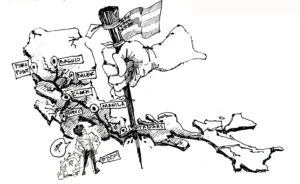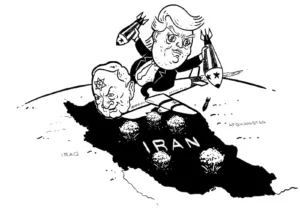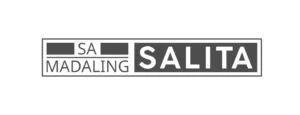By Professor JOSE MARIA SISON
Chief Political Consultant
National Democratic Front of the Philippines
Article in the December 13, 2006 issue of i Report,
the online publication of the Philippine Center for Investigative Journalism
In response to the all-out war policy and Oplan Bantay Laya of the regime, the CPP, NPA, NDFP and the broad masses of the people have resolutely and militantly fought back. They have issued publications (see www.philippinerevolution.net) informing us that they have been able to frustrate the military and police campaigns of the regime and to launch various forms of tactical offensives within the strategy of defense. They are successfully waging an intensive and extensive guerrilla warfare based on an ever widening and deepening mass base. They have seized more arms from their enemy, often without firing a single shot. They are therefore increasing the number of their fighting units and are forming more guerrilla fronts, organs of political power and mass organizations.
By Professor JOSE MARIA SISON
Chief Political Consultant
National Democratic Front of the Philippines
Article in the December 13, 2006 issue of i Report,
the online publication of the Philippine Center for Investigative Journalism
INTRODUCTION
The ruling system in the Philippines is semicolonial and semifeudal. It is dominated by foreign monopoly capitalist countries headed by the US and Japan. It is ruled by the comprador big bourgeoisie and the landlord class and managed by their political representatives. The foreign and local exploiters collaborate against the national and democratic rights and interests of the Filipino people.
The ruling system has its inherent weaknesses due to the backward, agrarian, pre-industrial and semifeudal character of its social economy and is subject to the policy impositions of the US and other imperialist powers. These powers keep the Philippines as a reliable source of cheap raw materials and labor, a lucrative market for surplus goods, a field of investments for surplus capital and a source of superprofits. The illusion of development conjured by low value-added semi-manufacturing for re-export and the boom in private construction has been shattered since the 1997 financial crisis.
The ruling system is in a chronic and ever worsening economic and social crisis. It is prevented from accumulating the capital for national industrial development because the surplus product of the country is appropriated by the imperialist super-profiteers, the local exploiting classes and the corrupt government officials. The toiling masses of workers and peasants and the middle social strata are subjected to an ever rising level of exploitation. The entire nation is made to suffer ever bigger budgetary and trade deficits and ever mounting levels of debt and tax burden.
The socio-economic crisis has been aggravated and deepened by the US-imposed policy of “neoliberal globalization”. The gravity of the socio-economic crisis has resulted in an unprecedentedly serious political crisis, involving far sharper contradictions among political factions of the exploiting classes within the civil bureaucracy and within the military and police apparatuses of the state.
The ruling faction of Gloria M. Arroyo is detested not only by rival factions within the reactionary classes but by the broad masses of the people because of its illegitimacy based on electoral fraud, rampant corruption and gross human rights violations. It has taken advantage of the US-dictated war of terror in order to take the initiative of using military force and against the entire range of opposition forces and broad masses of the people. Thus, the growing conditions of violence and instability in the country.
I. Prospects of Reform up to 2010
The sharpening socio-economic and political crisis generates popular demands for reforms as well as for revolution. The basic reforms most in demand are meant to uphold, defend and promote national sovereignty and independence, economic sovereignty and the national patrimony, genuine land reform and industrial development, a patriotic, scientific and democratic system of culture and education and independent foreign policy. These are demanded by the patriotic and progressive reformers within the ruling system as well as by the revolutionary forces.
But the Arroyo regime is deaf to the demands. It continues to raise funds for all its counterproductive and corrupt purposes by seeking foreign loans at commercial rates, by increasing the local public debt and making heavier the tax burden of the people. Such financial irresponsibility has clear limits. The Philippine economy has actually been depressed since 1997. A bigger wave of economic disaster is currently on the way from the direction of the US economy. The unsustainability of high consumption based on borrowed funds, the bursting of the housing bubble and the limits of high military spending as economic stimulus are moving towards an unprecedented US recession and drastic drop in US consumer demand for goods from China, the whole of Asia and the rest of the world.
The Arroyo regime has always construed as the needed reforms what are the dictates of US imperialism under the rubric of “neoliberal globalization.” It has also misrepresented as “political reforms” the changes it wants to make on the 1987 constitution. At the maximum, it wants to imitate Marcos by pretending to shift from the presidential to a parliamentary form of government in order to concentrate powers on Arroyo as a transitory president and to get the support of the US by according national treatment to all kinds of foreign monopoly investments and by allowing the return of US military bases. At the minimum, the regime has hyped the campaign for “charter change” in a futile attempt to distract the attention of the opposition and the people from seeking to oust Arroyo. Up to now, Speaker Jose de Venecia is pushing a “constituent assembly” without the approval of the Senate as a distinct body. Such unconstitutional assembly will either be foiled by the Supreme Court or if somehow pushed through it will generate political turmoil.
Because of the extremely reactionary and violent policies and actions of the Arroyo regime, the honest reformers who are patriotic and progressive find themselves completely frustrated in seeking reforms within the reactionary system. Thus, they increasingly appreciate and welcome the revolutionary movement as a pressure on the ruling system. Even the reformists, who denounce the revolutionary movement and wish to use reforms for counterrevolution, find themselves totally discredited. They are best exemplified and embarrassed by the clerico-fascist Norberto Gonzales, the national security adviser, who long misrepresented himself as a social-democratic reformer.
Revolutionaries are necessarily reformers even as they are definitely not reformists. They seek reforms in being open to peace negotiations with the reactionary government. They also wish the better elements in the reactionary government to prevail over the bad ones on the matter of reforms. The Hague Joint Declaration of 1992 clearly states the basic economic, social and political reforms that the National Democratic Front of the Philippines (NDFP) seek in order to address the roots of the armed conflict in negotiations with the reactionary government (GRP).
The NDFP has already demonstrated that it is capable of arriving at a comprehensive agreement on respect for human rights and international humanitarian law. And it has demanded that the economic, social and political reforms be negotiated and agreed upon. But the Arroyo regime has treacherously sabotaged the peace negotiations by collaborating with the US in putting the Communist Party of the Philippines (CPP), the New People’s Army (NPA) and the NDFP chief political consultant in the so-called terrorist list and in launching Oplan Bantay Laya in order to carry out the extrajudicial killings, abductions, torture, massacres and so many gross human rights violations.










